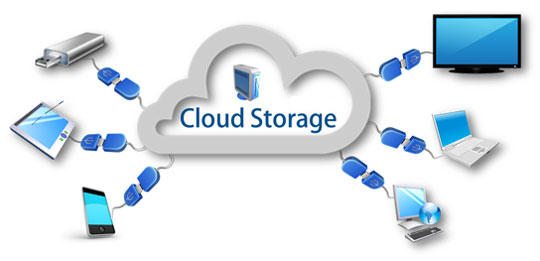 According to the U.S. Census Bureau, the majority of new businesses are no longer in operation five years after being founded. The reasons for such a high failure rate among small business are the result of a number of factors, from poor management to overall marketplace conditions. But modern businesses would be remiss if they didn't consider proper data storage as one of the cornerstones of a successful operation. After all, lost or otherwise unprotected data has led to a number of lawsuits over the years that have shut the doors of otherwise competent small businesses for good.
According to the U.S. Census Bureau, the majority of new businesses are no longer in operation five years after being founded. The reasons for such a high failure rate among small business are the result of a number of factors, from poor management to overall marketplace conditions. But modern businesses would be remiss if they didn't consider proper data storage as one of the cornerstones of a successful operation. After all, lost or otherwise unprotected data has led to a number of lawsuits over the years that have shut the doors of otherwise competent small businesses for good.
But the good old days of a simple external hard drive meeting the backup needs of smaller organizations are gone forever. Now it's all about the cloud — the ability to store and stream data from offsite servers. Yes, every business in operation today should have a cloud data storage solution. Of course, not all cloud providers are created equal. Here's what small businesses need to do to prepare for a cloud backup plan as well as how to select the right provider.
Toss all onsite backups
Yes, that means giving all discs and external hard drives the old heave-ho. These antiquated devices simply have no place in the modern world of data storage. Not only that, but onsite physical backups are of no use in the event they are destroyed in a workplace fire or other accident that can plague a business. Theft and loss are also common issues when physical backups are the only one implemented.
Audit business data
This should be the first step for any business looking to sign on to a cloud backup service. By taking stock of all of the organization's data, the business owner will gain a firm idea of just which sections of data need protecting. Of course this includes account data and customer info, but in today's mobile age business owners should consider their smartphones and tablets as well. In fact, any device utilized for business processes within the operation should be subject to data auditing. And tech experts recommend performing a full data audit at least once a year.
Compare cloud storage providers
Obviously a crucial part of the process, as these are the people who will ultimately be entrusted with the business' most sensitive info. Business owners need to take reputation into account and ask tough questions of the provider. They will want to settle for no less than an uptime rate of 99% — meaning that the provider's servers are guaranteed to be up and running 99% of the time. Business owners should also look for any of the hidden administrative fees or cancellation charges that tend to pop up during the contract process.
Having said all that, here is a list of some reputable cloud service providers:
These are just some things for businesses to consider when making the leap to the cloud. By focusing on the above guidelines, small businesses should be able to enjoy nearly 100% data protection from a reputable provider.
Benson Garrod is a digital content strategist for SalvageData.com, a company offering data recovery services in Washington, DC, Boston, NY, and other major cities. He enjoys keeping up with the latest trends in data recovery, smart phone apps, new gadgets, and other fun tech stuff!







